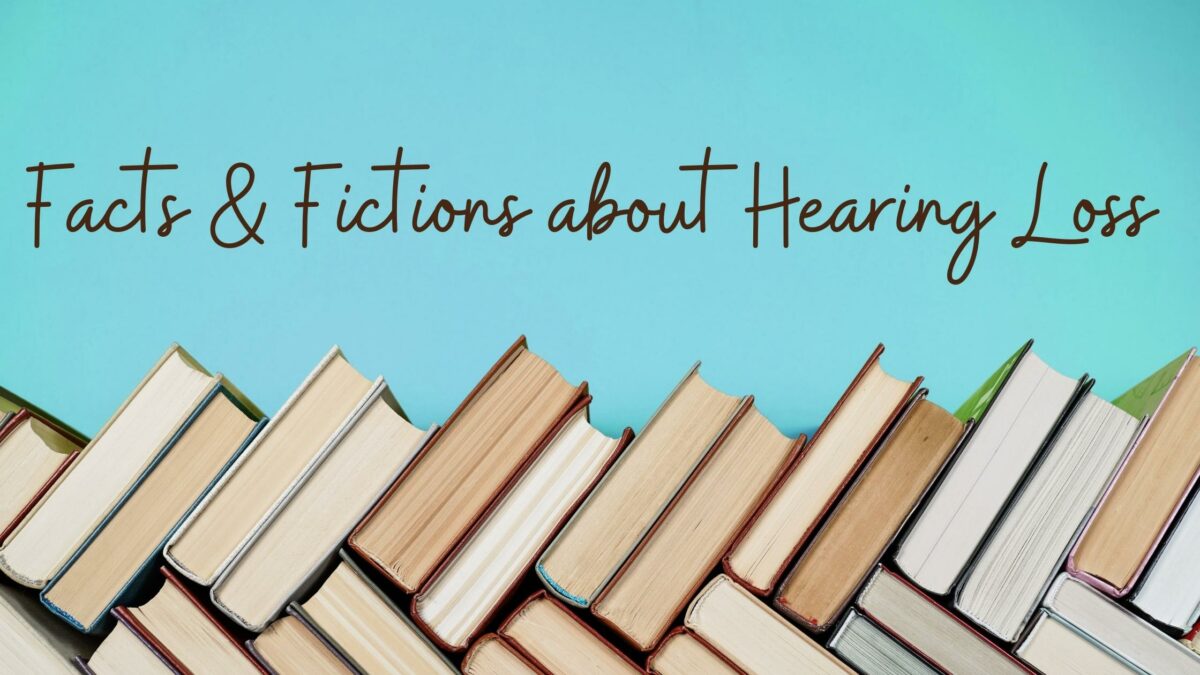The realm of hearing health has yet to take the spotlight the way that other health concerns have. You are probably more likely to have your vision tested and pursue an intervention, like eyeglasses, than you are to have your hearing tested on an annual basis.
And nearly all of us will deal with hearing loss directly, whether it be our own diagnosis or that of a beloved friend or family member. Today, nearly 40 million Americans over the age of 18 report some difficulty hearing. So what else do you need to know? Below are five common misconceptions about hearing loss and we’re here to set the record straight.
Fiction: My loved one has hearing loss, but I don’t want to hurt their feelings by talking about it.
Fact: Emotional support from friends, family, and loved ones is crucial when a person is experiencing hearing loss. The very nature of the condition can cause people to feel socially isolated and unconnected from their communities. Perhaps the kindest act you can take is to become a safe place for them to talk about their experience and share their hardship.
Moreover, a recent survey from the American Speech-Hearing-Language Association found that the most motivating factor in a person’s decision to seek help for their hearing loss is encouragement from concerned family members.
Fiction: I’ll know I have hearing loss right away.
Fact: Hearing loss often first appears as the inability to hear higher frequencies. This means that the early symptoms are less an overall lowering of all volume, but instead, it’s as if the folks around you are mumbling their words. You may find yourself saying “What’s that?” an awful lot.
It also might make hearing dialogue on television and film much more difficult and closed captioning might begin to make a regular appearance on your home devices. Telephone calls can become incredibly laborious since you must rely solely on the verbal words spoken and without the context clues of facial expressions and the way your conversation partner’s mouth shapes their words.
Fiction: I can self-diagnose my hearing loss, so I’ll have my hearing checked when and if it appears.
Fact: Because of the reasons stated above, it is extremely difficult to diagnose your hearing loss at first. And, people live with hearing loss without treatment for far longer than they need to. The average hearing aid wearer waits ten years with symptoms of hearing loss before choosing to intervene. That’s why it’s important to schedule regular visits to your audiologist. If you make an appointment with us for a hearing consultation, we’ll first guide you through the easy process of a hearing exam, explain your results, and talk about any precautions or interventions that might help your hearing health.
Fiction: Hearing loss is inevitable and there isn’t any treatment, so I may as well just live with it.
Fact: Hearing loss might be more avoidable if you prioritize your hearing health by limiting your ears’ exposure to dangerously loud noise. Noise-induced hearing loss is the second leading cause of hearing loss that occurs later in life. If you engage in recreational or professional activities that put your hearing into harm’s way, you can easily invest in hearing protection — like noise-canceling headphones, protective ear wear, or custom earplugs — that will increase your odds of avoiding noise-induced hearing loss.
And while hearing loss itself is not reversible, there are many reliable and proven interventions out there! Hearing aids and cochlear implants have drastically improved the hearing lives of millions of people.
Fiction: Hearing aids will make me look old.
Fact: We’re going to be blunt here. What truly makes a person look old is when they’re constantly asking ‘What!?’ in a conversation. Or when they lose their zest for life and connection because they’re avoiding the difficulty of entering into conversations with others because hearing loss makes those conversations impossible.
Today’s hearing aids are sleek, mighty, and powerful. Since the computer revolution of the 1990s propelled the industry forward by light years, some hearing aids are so small they’re virtually undetectable. And, if it makes you more inclined to pursue hearing aids, today’s youth are highlighting their hearing aids. The trend is to be-jewel or be-dazzle hearing aids to make them stand out and be noticeable in unique ways.

